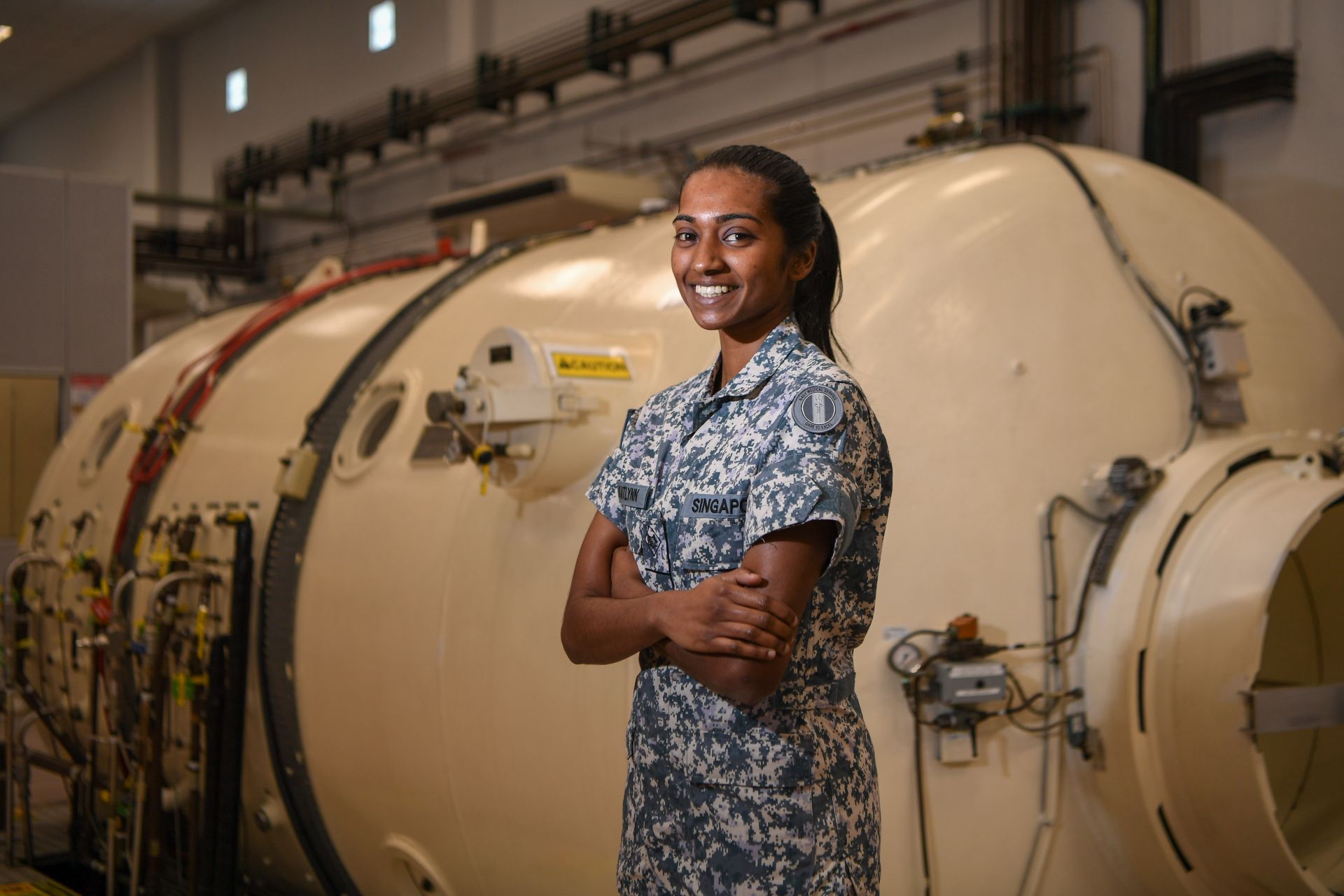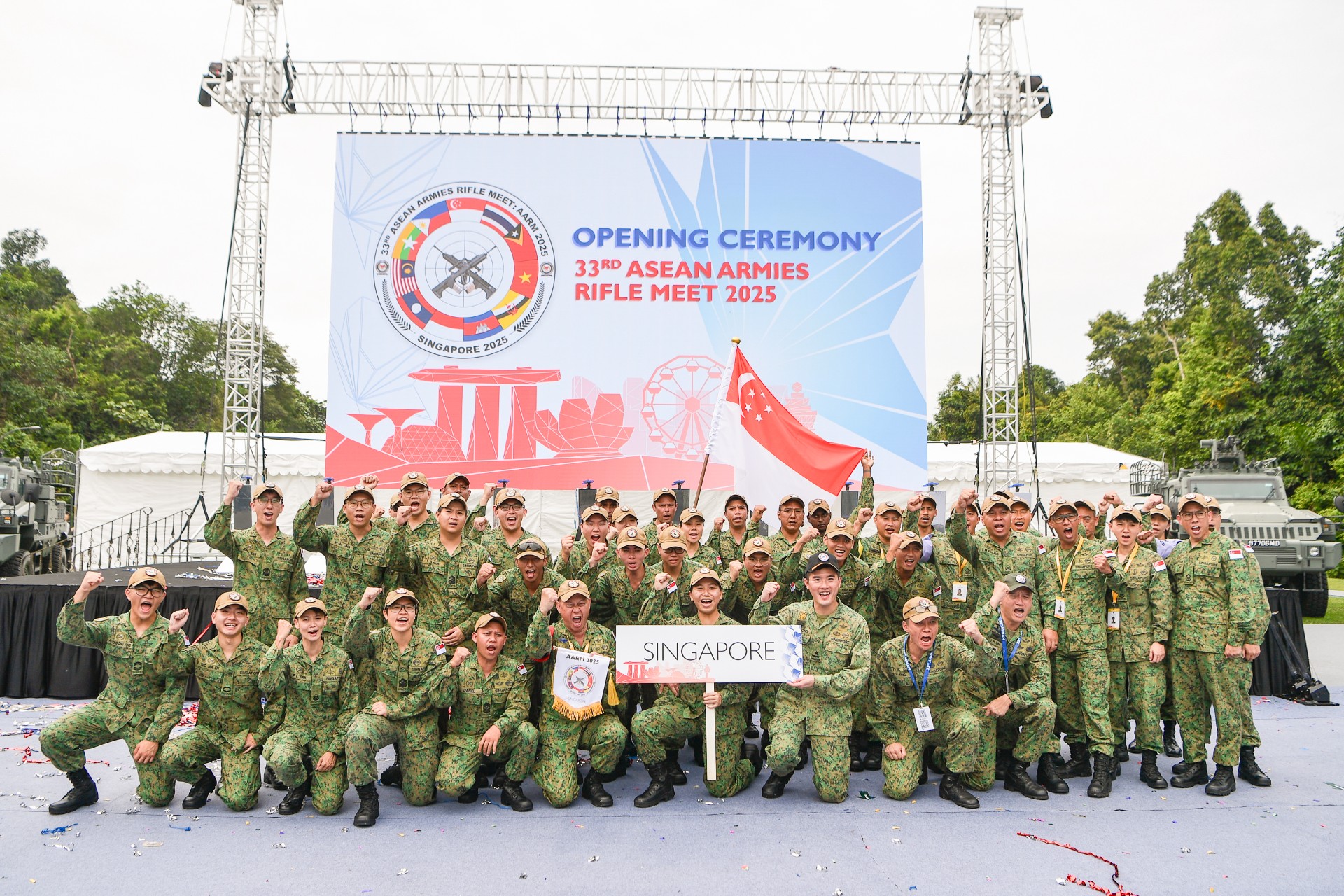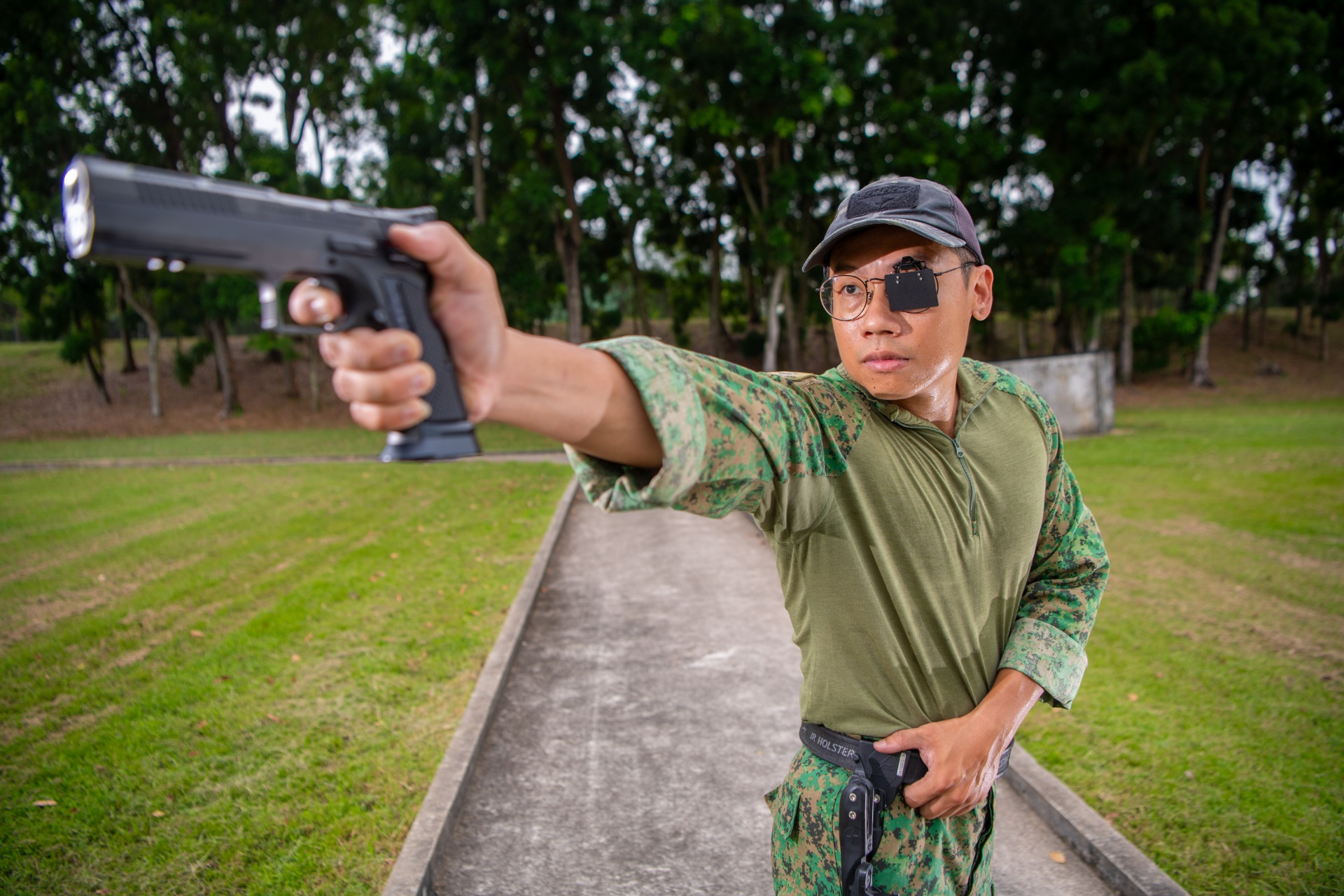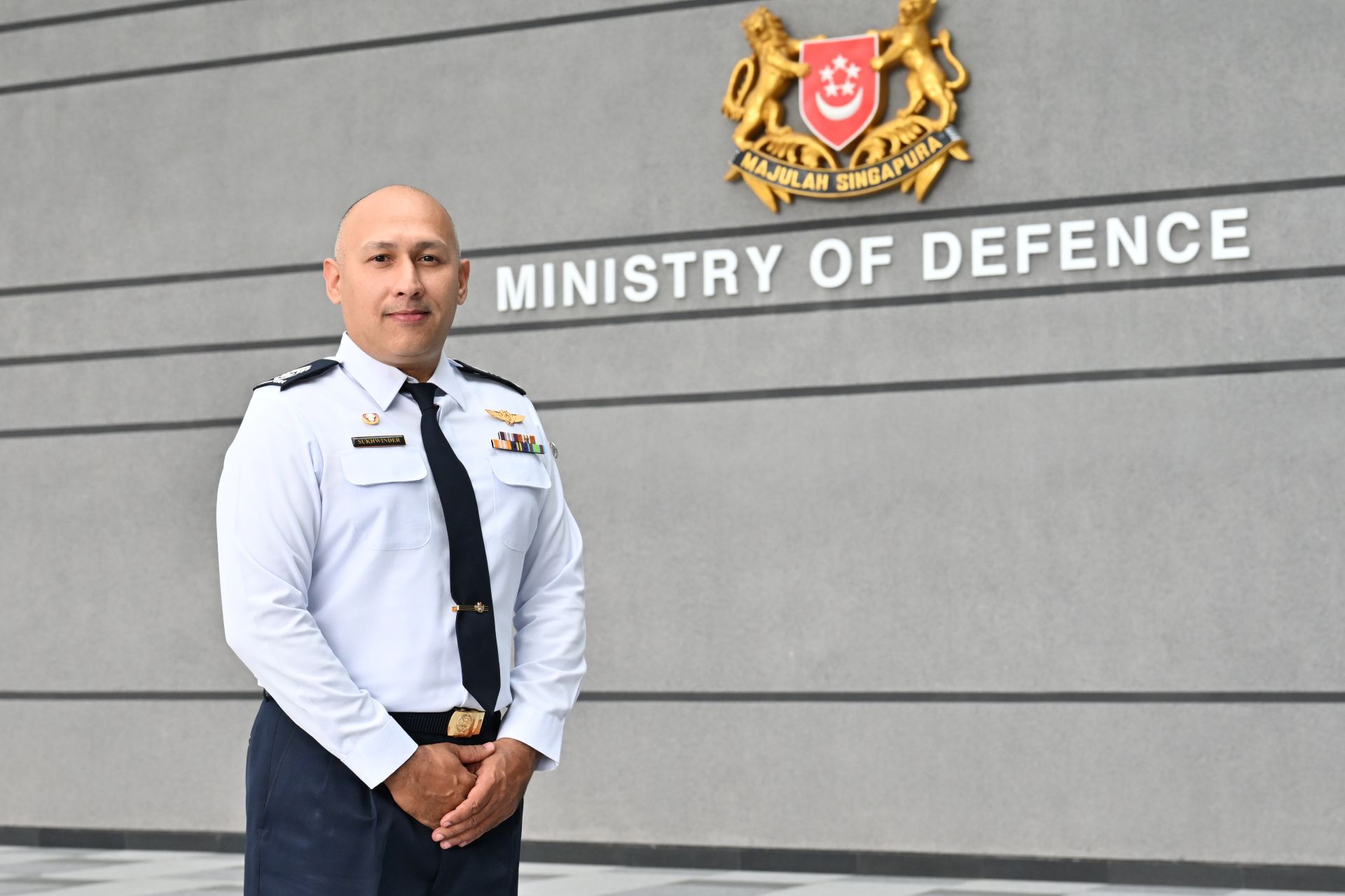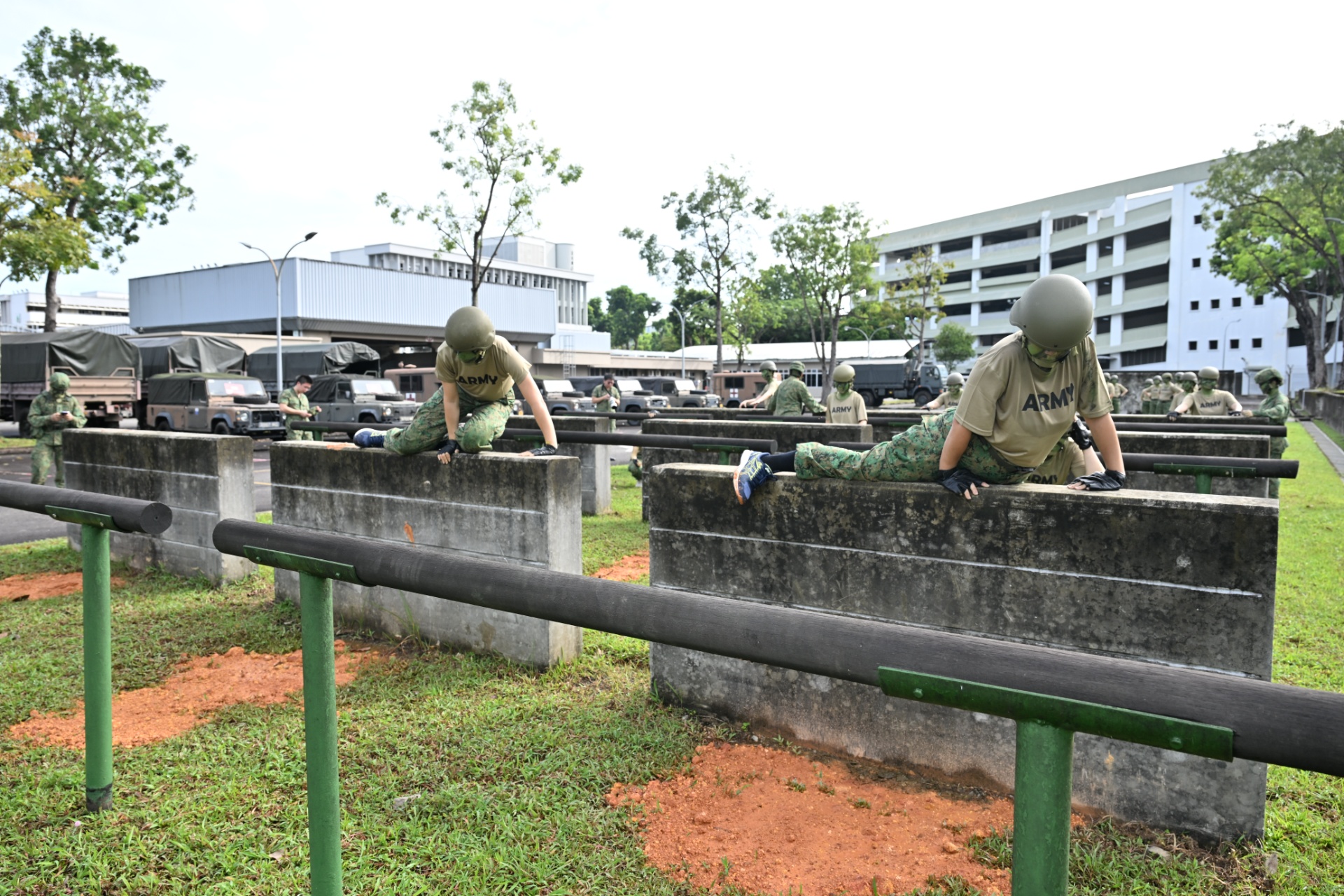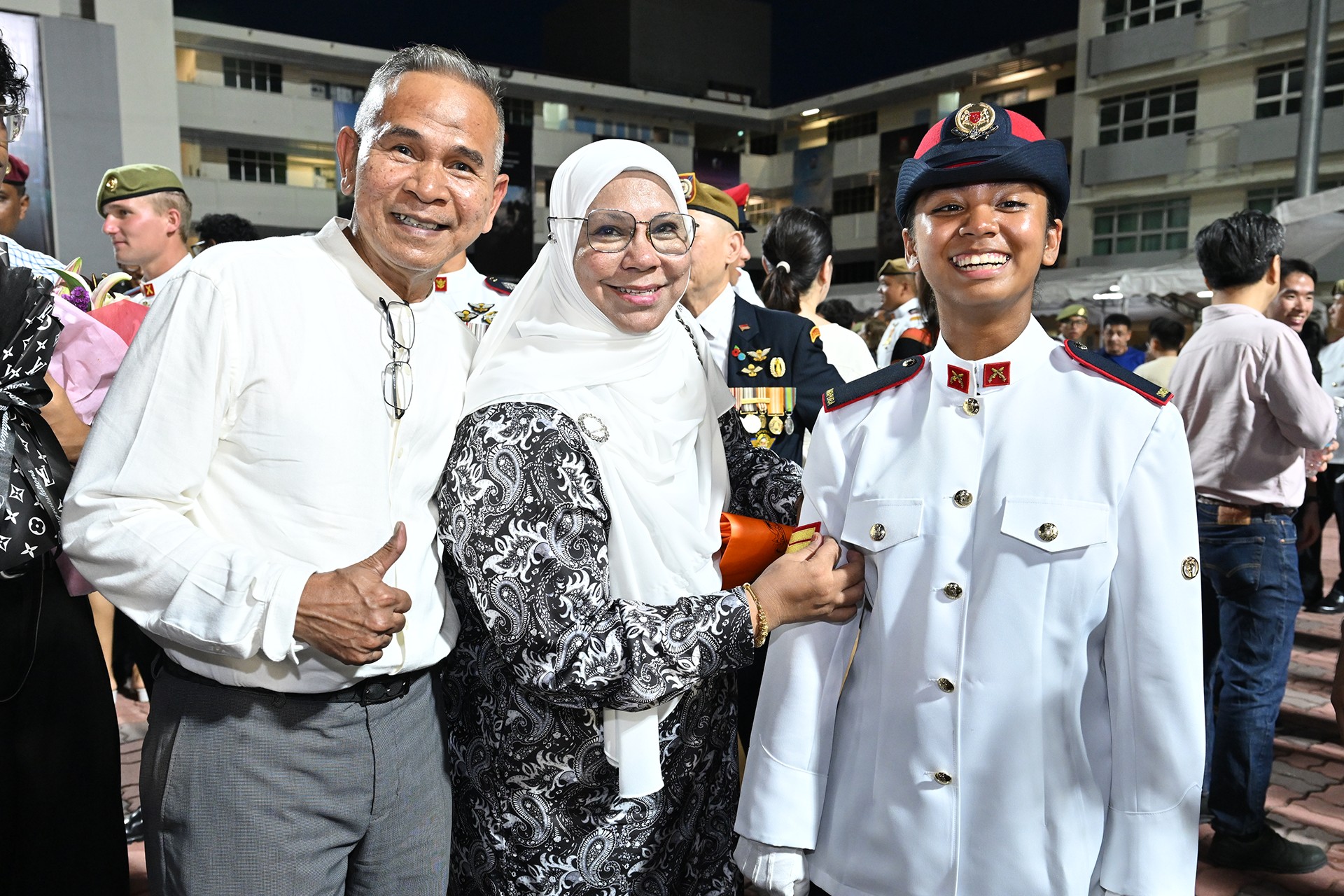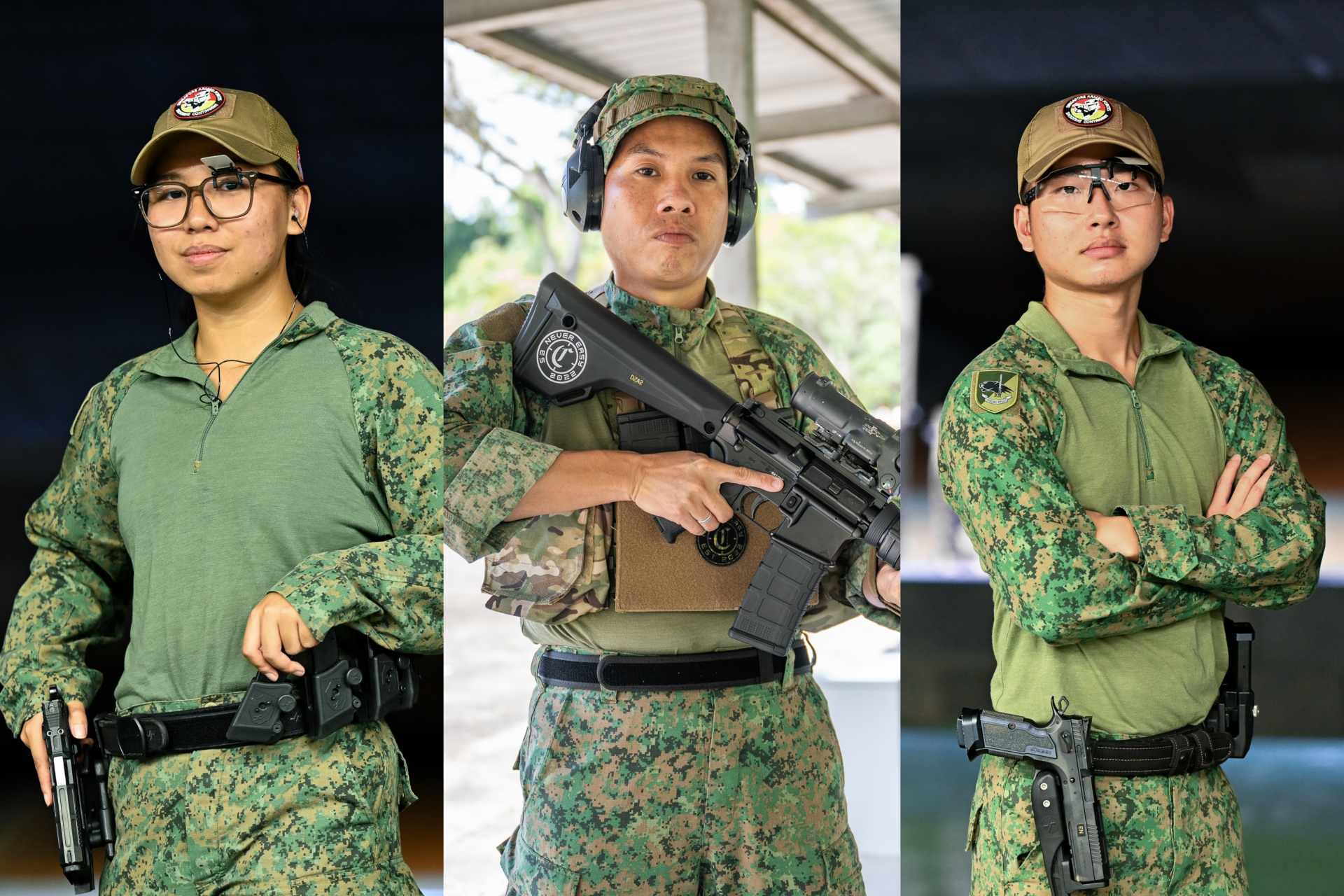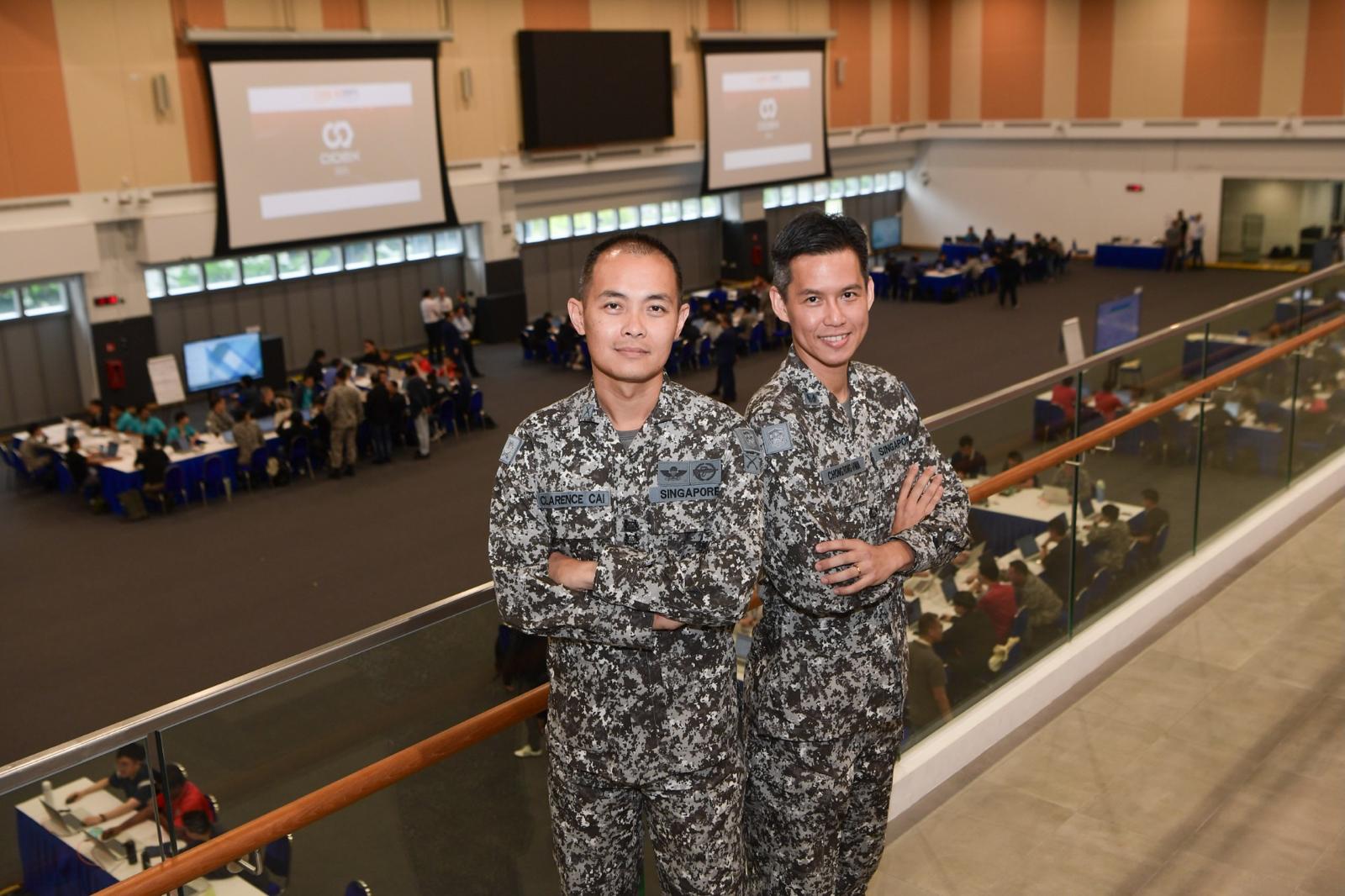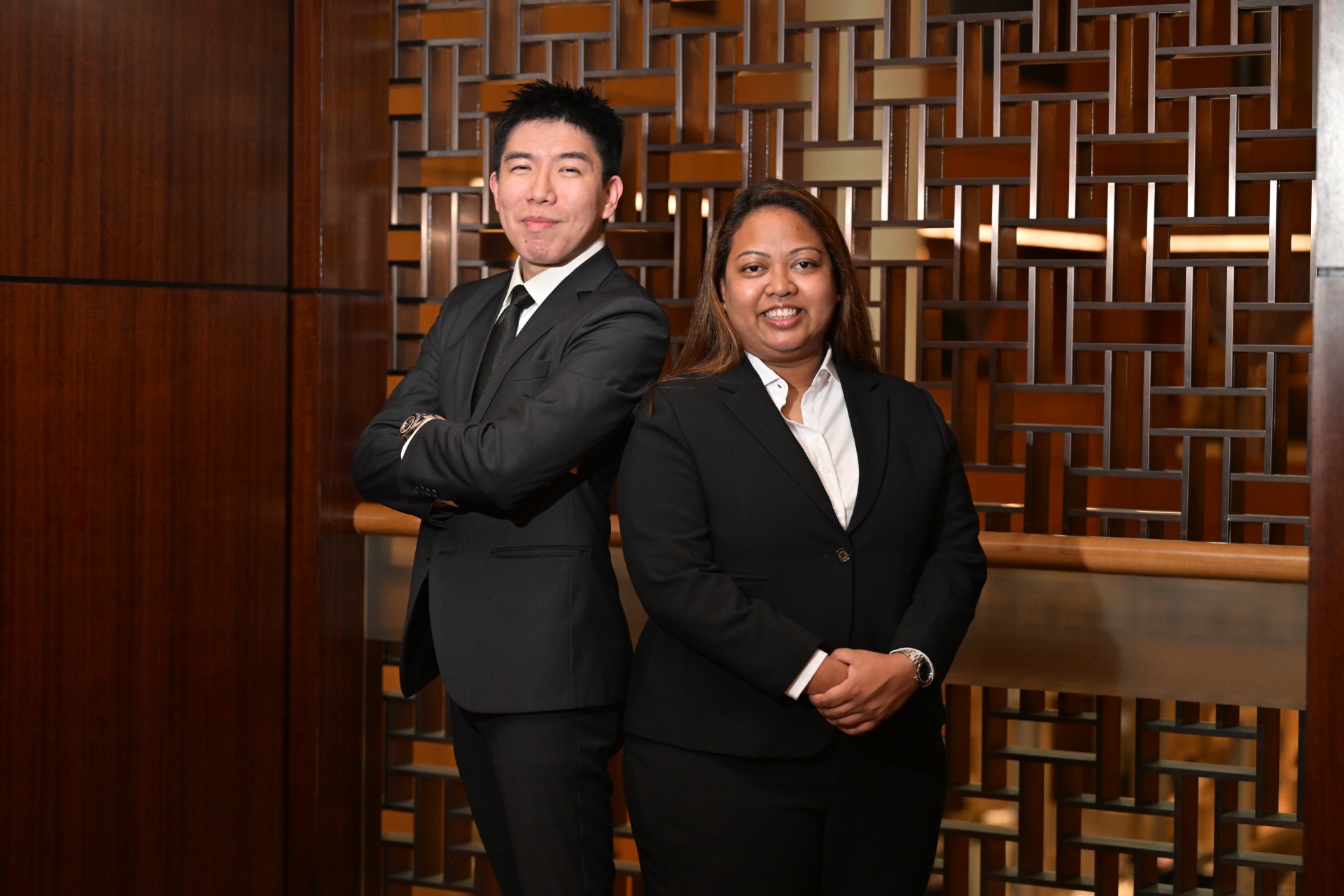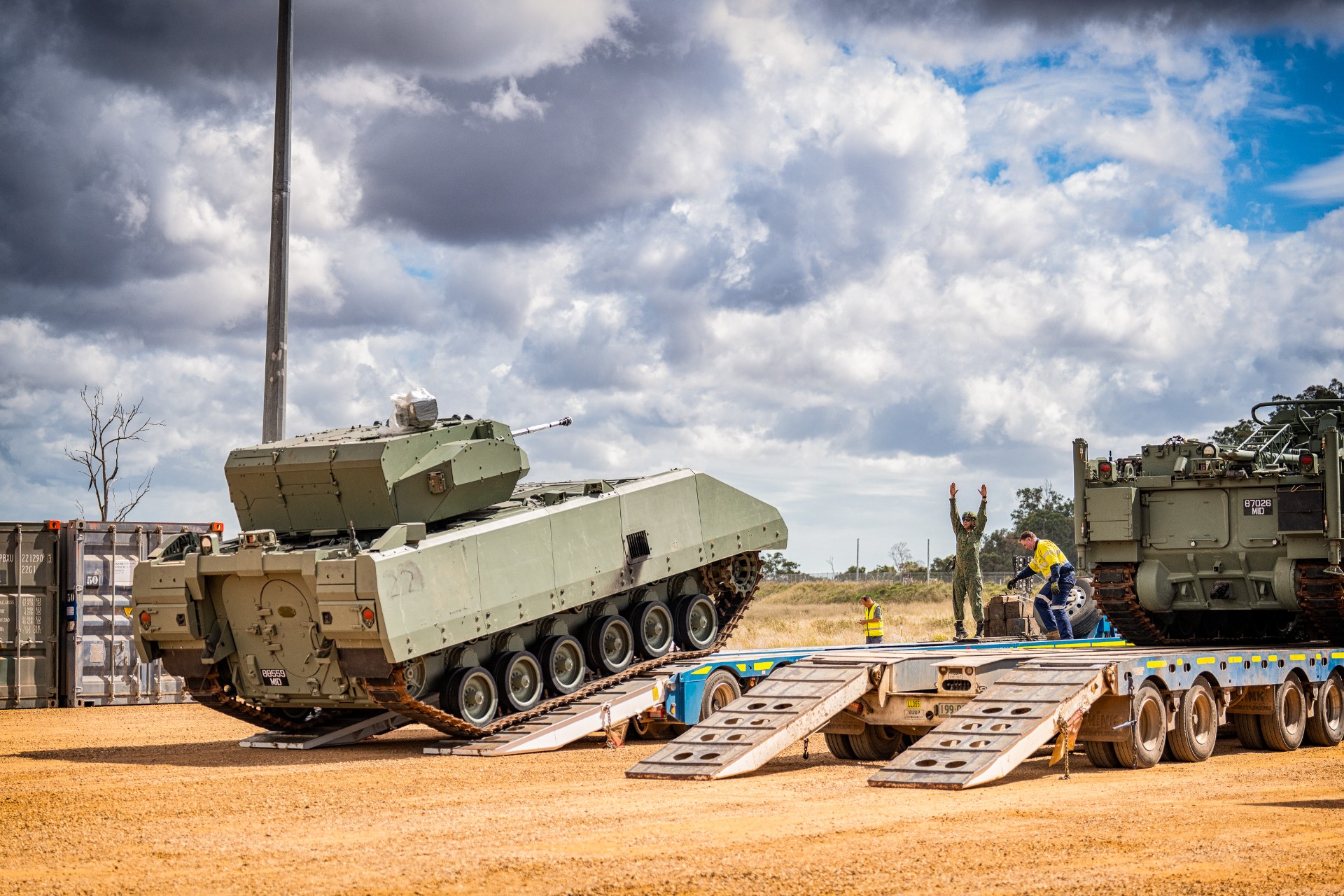From hospital ward to hyperbaric chamber
//STORY BY DARREN KHO /PHOTOS BY LOH YU ZE & COURTESY OF ME1 ARUMUGAM
ME1 Kaitlynn Arumugam shares why she made the switch from nursing to joining the Republic of Singapore Navy (RSN), in the latest of PIONEER’s From Desk to Field series.
She traded her nurse’s scrubs for military fatigues, and hospital wards for the hyperbaric chamber. But 24-year-old ME1 Arumugam’s belief remains the same: to do her best in the service of others.
Her journey began in 2018 – driven by a deep-rooted desire to care for others, she enrolled at the Institute of Technical Education to study nursing.
During the COVID-19 pandemic, she served as an assistant nurse while waiting to enter Nanyang Polytechnic. She received her diploma in Nursing in 2022.
For nearly two years, she worked in geriatric wards as a registered nurse, tending to seniors as well as providing medical care and, sometimes, emotional support.
She recalled spending a Chinese New Year shift with elderly patients who had no visitors: “We weren’t just their nurses doing our work — we were their family.”
Answering the call to serve
But even as she found purpose in nursing, the Navy was always quietly calling — through family trips to Navy open houses over the years, and through the steady influence of her father, a former naval officer known at home for his calm, disciplined presence.
“I loved being a nurse, but I also had this dream of joining the military,” she recalled.
The structured and impactful nature of a military career appealed to her, and a visit to a career fair in 2022 introduced her to the Republic of Singapore Navy’s (RSN’s) Military Medical Expert (Underwater) scheme.
It felt like the perfect blend of her passion for medical care and her aspiration to serve in uniform.
In 2024 at the age of 23, she finally took the plunge and signed on as an underwater medic.
ME1 Arumugam credits her naval seaman father for instilling in her a strong sense of discipline and vigilance. His ability to execute tasks calmly even when under pressure is an invaluable skill she picked up and carries with her even today.
“The decision to join the RSN was mine alone, but my father’s experiences and values definitely influenced the way I approach challenges.”
From nurse to soldier
On 1 Apr 2024, ME1 Arumugam began her new career with Basic Military Training (BMT) and, later, Specialist Cadet School.
Transitioning from a hospital setting to military life was not without its challenges. While she had the medical knowledge, the physical demands of training and adapting to a new lifestyle pushed her beyond her comfort zone.
Through it all, her family was extremely supportive, often going the extra mile to show their support. From setting aside time to chat when she makes her daily calls home to cooking her favourite dishes when she books out, these acts kept her going.
“During my BMT outfield, they printed family pictures and wrote letters behind them for me. These little things really motivate me to do better, not only for myself, but for them.”
Her friends that she made throughout her military journey have also played a huge role in supporting her.
“In SCS, my platoon mates would sometimes march me back to my bunk at night. They always made sure I wasn’t alone for long periods of time.”
Moments like these cemented the friendships she built. “These kinds of things really made me feel like the SAF (Singapore Armed Forces) gave me friends for life. They all became like my younger brothers, so I never felt alone.”
Mastering Underwater Medicine
After graduating from the Specialist Cadet Course on 20 Feb, she was posted to Medical Flotilla’s Underwater Medical Healthcare Section as a Military Medical Expert.
She underwent the Underwater Medic Course, which trains Navy medics in hyperbaric medicine and diving-related medical procedures.
A key component of her training involves operating the hyperbaric chamber, an enclosed capsule that is used to treat decompression illness and other medical conditions.
The chamber recreates the varying pressures a diver experiences underwater, allowing medics to treat pressure-related injuries. It can also be used for treating non-diving-related conditions like diabetic wounds.
Although the fundamentals of patient care are similar to what she was taught as a nurse, ME1 Arumugam must now learn to operate in a very different environment.
She explained: “Unlike in a hospital where we have space, resources, and manpower, as an underwater medic, I have to be ready to work independently to treat casualties in confined, high-stress environments.”
A leader in the making
As a subject matter expert, ME1 Arumugam aspires to be a leader who is both proficient and trustworthy.
“I see myself as a situational leader—someone who adapts based on circumstances. The ability to stay calm and make informed decisions in high-pressure situations is crucial in this role.”
Looking back, she has no regrets about leaving her nursing career for the Navy. “Interacting with my fellow trainees, building camaraderie, and knowing that I’m part of something bigger than myself — it’s all worth it.”
And her advice for anyone considering a career switch and taking a leap of faith to join the Navy?
“Take the first step without doubting yourself. The Navy is like a family, and you will never be alone.”
